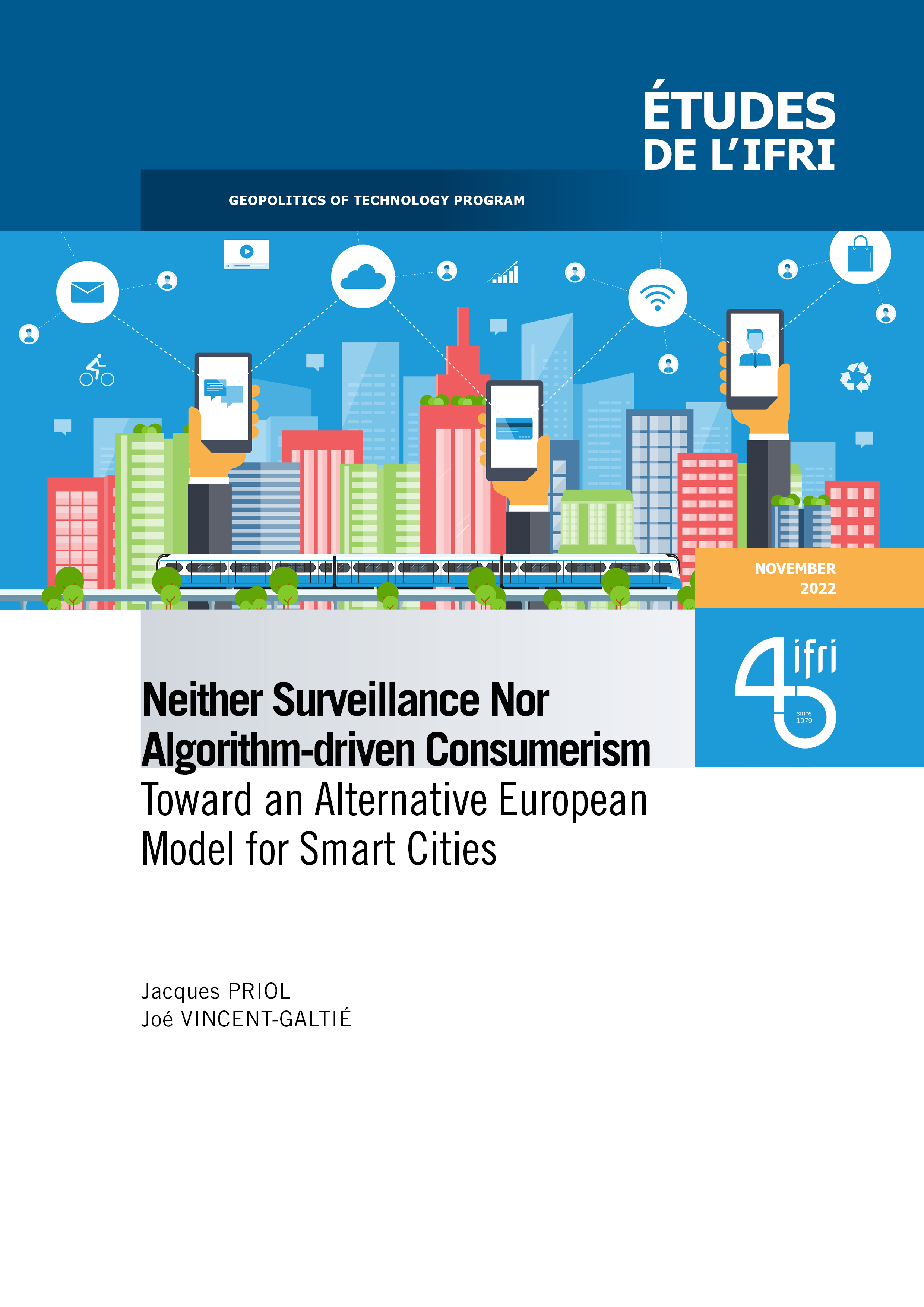Neither Surveillance nor Algorithm-driven Consumerism. Toward an Alternative European Model for Smart Cities

Numerous smart city projects are emerging, guided by objectives of efficiency and improvement of public policies. All of them are based on intensive use of data and digital tools, but their concrete achievements take various forms. Some models are being exported and are becoming levers of influence, while Europe is still looking for its own path.

Smart city projects take many forms, ranging from the installation of connected street lights to total initiatives such as The Line - the gargantuan and futuristic project led by Saudi Arabia. In one form or another, these initiatives are multiplying, notably guided by objectives of efficiency and improvement of public policies. What they all have in common is that they mobilize numerous digital tools and make use of data to develop and manage public services. Where does Europe stand on this spectrum and how are the models used as levers of influence?
Two models are unanimously rejected: the one promoted by China and the one implemented by some North American cities. The first subordinates the smart city to security and social control imperatives. It contributes to a constant surveillance of the population. In contrast to this model, which is primarily designed to achieve control and surveillance objectives on behalf of the State, the Californian-inspired North American model is criticized for its massive use of personal data, which is collected and used by private actors. Residents are alarmed by the potential use of these data for commercial purposes and deplore the replacement of democratic deliberations by automated tools.
Therefore, developing a European model requires taking into account these pitfalls and respecting both the challenges related to the protection of privacy and the maintenance of open and democratic procedures. Europe can rely on an ambitious regulatory framework, capable of encouraging the development of smart cities. This framework can also be a real asset for exporting its model to other continents. European initiatives in the field of smart cities are also part of efforts to promote digital sovereignty. In this respect, matters of standardization, interoperability and infrastructure are at the heart of the debate, and while they must be fully integrated into the projects implemented, they are also the subject of fierce international competition.
This publication is also available in French: Ni surveillance, ni consumérisme algorithmique. Vers un modèle européen alternatif pour les villes intelligentes

Available in:
Regions and themes
Share
Download the full analysis
This page contains only a summary of our work. If you would like to have access to all the information from our research on the subject, you can download the full version in PDF format.
Neither Surveillance nor Algorithm-driven Consumerism. Toward an Alternative European Model for Smart Cities
Related centers and programs
Discover our other research centers and programsFind out more
Discover all our analysesRegulatory Dynamics and Tensions in the Space Sector: Towards and Americanization of Space Law?
The development of space law has gradually evolved from a top-down normative dynamic dominated by the founding impetus of the UN to a bottom-up normativity driven by national and industrial practices. This evolution is now accompanied by growing normative competition, raising the risk of an Americanization of space law and prompting the question of a European response.
The Sustainability of Space Operations: An Opportunity for European Leadership?
As space becomes a key arena for power projection strategies, while facing growth and diversification of orbital activities, the concept of “space sustainability” is emerging as a new framework of analysis for space governance.
The “Huawei Saga” in Europe Revisited: German Lessons for the Rollout of 6G
While the European Union attempted to coordinate a collective response through its 5G Toolbox in Europe’s 5G infrastructure, member states diverged significantly in balancing political, economic, and technological considerations. Germany, despite its economic ties to China and status as Europe’s largest telecom market, only reached a tentative agreement in July 2024—one that appears largely symbolic.
European Startups and Generative AI: Overcoming Big Tech Dominance
Europe is at a crossroads. Faced with the domination of American Big Tech across the entire generative Artificial Intelligence (AI) value chain, from foundation models to cloud infrastructure, distribution channels, and open source, it risks long-term technological and economic decline. Yet generative AI also represents a major opportunity for economic transformation, with a potential value estimated at 1.5 times France’s gross domestic product (GDP). To turn it into a driver of renewal, Europe must move beyond the illusion of total technological independence and instead build an ecosystem that leverages Big Tech resources while strengthening its own innovation capabilities.










